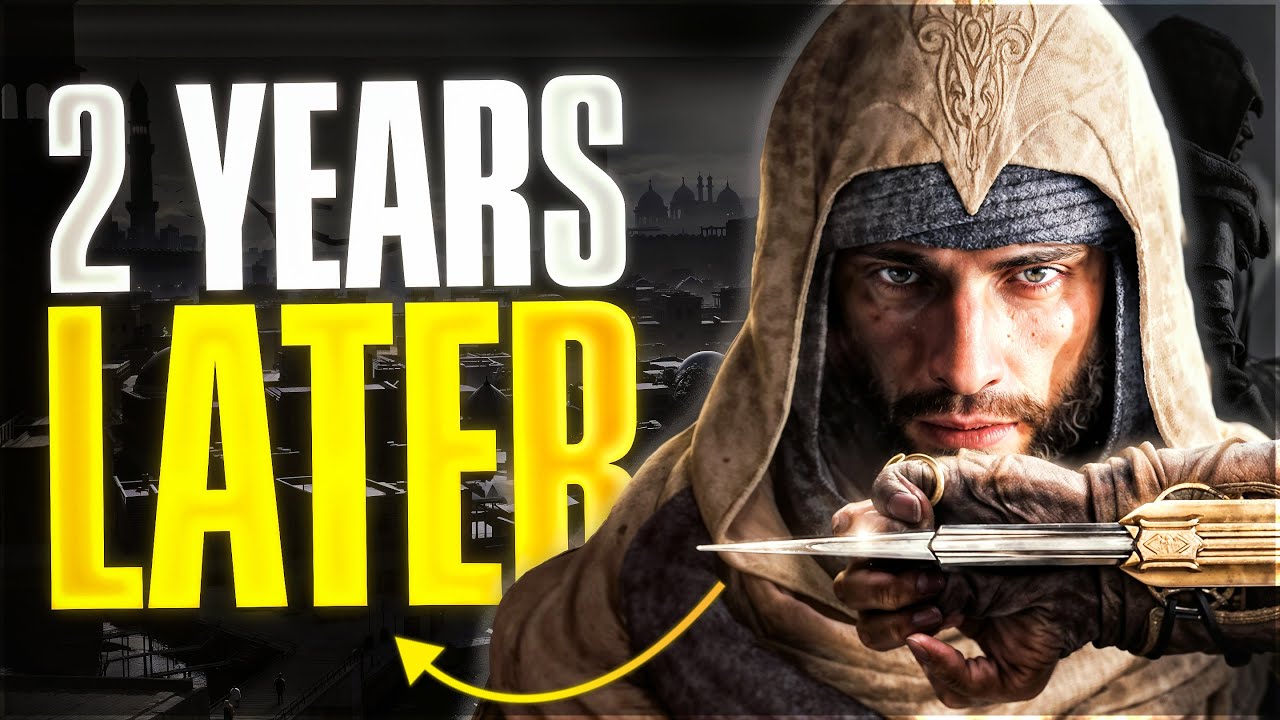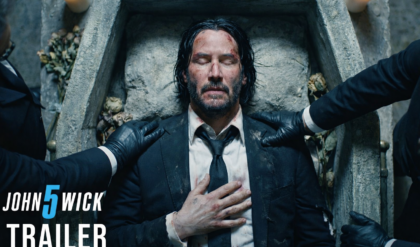😎 Is Assassin’s Creed Mirage secretly the comeback fans have been craving, or a total letdown in 2025? 🗡️ Two years after its release, the buzz around Basim’s stealthy adventure in Baghdad is still splitting gamers. Some call it a nostalgic masterpiece, others say it’s a glitchy step back. 🤔 What’s the real deal? Dive into the shadows and find out for yourself—click to see what everyone’s saying! 👉

When Assassin’s Creed Mirage launched in October 2023, it was billed as a return to the franchise’s roots—a leaner, stealth-focused experience that harked back to the days of Altaïr and Ezio, shedding the sprawling RPG mechanics of Origins, Odyssey, and Valhalla. Set in a vibrant 9th-century Baghdad, the game follows Basim Ibn Ishaq, a street thief turned Hidden One, as he hunts the Order of the Ancients. Two years later, in 2025, with a surprise DLC expanding the game and new Assassin’s Creed titles like Shadows dominating headlines, the question lingers: is Mirage bad, or did it deliver what fans wanted? Let’s unpack the praise, the criticism, and the context to see where Mirage stands today.
The Promise of Mirage: A Return to Roots
The Assassin’s Creed series has been a juggernaut since 2007, but its shift toward massive open-world RPGs in recent years left some fans yearning for the tighter, stealth-driven gameplay of the early titles. Mirage was Ubisoft’s response to that nostalgia. Originally planned as a Valhalla expansion, it evolved into a standalone game, priced at $50 rather than the usual $70, and promised a shorter, 15-20 hour campaign focused on stealth, parkour, and assassinations. Set in a dense, detailed Baghdad, Mirage ditched XP grinding and leveling systems, letting players take down enemies with a single hidden blade strike if executed correctly.
For many, this was a breath of fresh air. Reviews from outlets like IGN and Rock Paper Shotgun praised Mirage for recapturing the essence of the series’ early days, with a focus on social stealth, rooftop parkour, and a notoriety system that punished reckless play. The city of Baghdad was a standout, with its bustling markets, intricate rooftops, and historical landmarks like the House of Wisdom, making it a playground for stealthy assassins. Fans on platforms like Reddit echoed this, with some calling it “the best AC since Unity” for its compact scope and emphasis on being a true assassin, not a Viking warrior or Spartan demigod.
The Highs: What Mirage Got Right
Let’s start with what works. Mirage’s Baghdad is a love letter to the series’ early settings like Damascus and Jerusalem. The city’s districts—Abbasiyah’s cultural hub, Karkh’s markets, Harbiyah’s industrial zones—feel alive, with detailed visuals and a historical codex that educates players about the Islamic Golden Age. Unlike the sprawling maps of Valhalla, which could take 60-100 hours to complete, Mirage’s smaller scale (20-30 hours for completionists) feels refreshing, avoiding the bloat that frustrated some players. The return of “Black Box” assassination missions, inspired by Unity and Syndicate, gives players freedom to plan their approach, whether via stealth, tools like throwing knives and smoke bombs, or environmental traps.
Stealth is the heart of Mirage. The game rewards careful planning, with eagle vision (via Basim’s companion Enkidu) and a notoriety system that forces players to bribe heralds or tear down wanted posters to avoid detection. Combat, while present, is deliberately punishing—Basim can’t take on hordes like Odyssey’s Kassandra, pushing players toward shadows and silent kills. The skill tree, split into Phantom, Trickster, and Predator branches, lets players customize their playstyle, from enhancing stealth tools to boosting Enkidu’s scouting abilities. For fans of the original Assassin’s Creed, this focus on being a “proper assassin” is a major win, and posts on X in 2025 still highlight its “arcade-y” feel and satisfying stealth mechanics.
The game’s cultural representation also deserves praise. Ubisoft cast a largely Middle Eastern voice cast, with Shohreh Aghdashloo’s smoky performance as Roshan, Basim’s mentor, stealing the show. The setting’s historical accuracy, from architecture to daily life, makes Mirage a fun way to learn about 9th-century Baghdad, much like the series taught players about Renaissance Italy or Revolutionary America. A free DLC announced in 2025, adding a new story chapter in AlUla, further enriches this historical focus, showing Ubisoft’s commitment to expanding Mirage’s world despite initial plans for no additional content.
The Lows: Where Mirage Stumbles
But not everyone’s sold. Critics and players have pointed out flaws that, in 2025, keep Mirage from being a universal hit. The story is a frequent target of criticism. Basim, a supporting character from Valhalla, transitions from a plucky thief to a master assassin in a way that feels rushed and predictable. Reviews describe him as “milquetoast” and lacking the depth of Ezio or even Kassandra, with a narrative that doesn’t connect meaningfully to Valhalla’s larger mythology, like the Isu or Animus arcs. The supporting cast, except for Roshan, is forgettable, and the Order of the Ancients’ villains are cartoonishly evil, lacking the nuance of past antagonists like Haytham Kenway. Some players on Reddit in 2025 called the story “fragmented” and a “money grab” for its lack of lore progress, especially for a game centered on a key character like Basim, revealed in Valhalla to be tied to the Norse god Loki.
Gameplay issues also dampen the experience. While stealth is satisfying when it works, the parkour system feels clunky, with Basim getting stuck on geometry or leaping in unintended directions—a regression from the fluidity of Origins or Unity. The enemy AI is another sore point, often described as “dumb as rocks,” falling for the same tricks repeatedly or failing to react realistically. Combat, though intentionally limited, feels unpolished, with sluggish inputs and a lack of variety compared to the RPG entries. Technical issues, like graphical glitches, crashes, and the infamous “T-pose on camel” bug, persist on PC, frustrating players even two years post-launch. These flaws make Mirage feel like a rushed project, especially given its origins as a Valhalla DLC.
Perhaps the biggest criticism is that Mirage doesn’t fully commit to being a true throwback. While it strips away RPG bloat, it retains elements of Valhalla’s engine, like floaty movement and a cluttered HUD, which clash with the old-school vibe. Some reviewers argue it feels like a “modern AC game with scaled-back options” rather than a bold reinvention, failing to match the polish of Assassin’s Creed 2 or Brotherhood. For players who loved the RPG era’s depth, Mirage’s simplicity can feel underwhelming, with a skill tree that’s “unimaginative” and side quests that grow repetitive.
The 2025 Context: How Mirage Holds Up
In 2025, Mirage exists in a different gaming landscape. Assassin’s Creed Shadows, with its feudal Japan setting and dual protagonists, has taken the spotlight, offering a larger, RPG-heavy experience that contrasts with Mirage’s focus. The surprise AlUla DLC, funded reportedly by Saudi Arabia, has sparked debate—some welcome the free content, while others question its motives, fearing historical revisionism. Yet, it’s a sign Mirage remains relevant, with Ubisoft patching parkour and adding quality-of-life improvements like a permadeath mode. Social media sentiment on X and Reddit shows a split: fans of classic AC games still champion Mirage for its stealth and setting, while RPG fans find it lackluster compared to Odyssey or Shadows.
The game’s value proposition is another factor. At $50 (and often cheaper on sale—some snagged it for $19), Mirage offers a solid 20-30 hours for those who enjoy its stealth focus. Its shorter length is a plus for players burned out by Valhalla’s 60+ hour slog, but others see it as overpriced for what feels like a glorified expansion. On platforms like Steam, discussions in 2025 suggest waiting for sales, especially with rumors of remasters for older titles like Black Flag.
The Verdict: Bad or Misunderstood?
So, is Assassin’s Creed Mirage bad in 2025? The answer depends on what you value. If you’re a longtime fan craving the stealth and parkour of the early games, Mirage delivers a nostalgic hit, with a gorgeous Baghdad and satisfying assassination missions. Its focus on being an assassin, not a warrior, resonates with players tired of bloated RPGs. But if you expect a gripping story, polished mechanics, or the depth of Odyssey, Mirage can feel like a step back—clunky, repetitive, and undercooked in parts. Its 7/10 average rating on sites like Metacritic reflects this divide: not bad, but not exceptional.
For me, Mirage is a mixed bag. I loved parkouring across Baghdad’s rooftops and planning stealthy takedowns, but the story left me cold, and the technical hiccups were hard to ignore. It’s not the triumphant return some hoped for, but it’s a bold attempt to reconnect with the series’ roots. In 2025, with Shadows pushing the franchise forward and remasters on the horizon, Mirage feels like a stepping stone—a love letter to old-school fans that doesn’t quite stick the landing but proves there’s still room for a leaner Assassin’s Creed. If you can grab it on sale, it’s worth a stab for the stealth alone. Just don’t expect Ezio-level charisma or a flawless experience.





